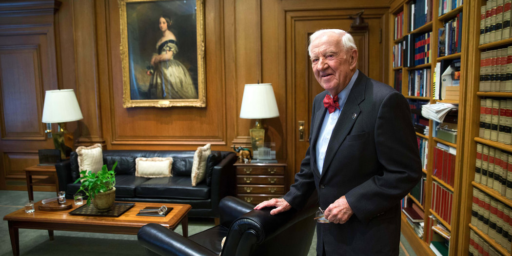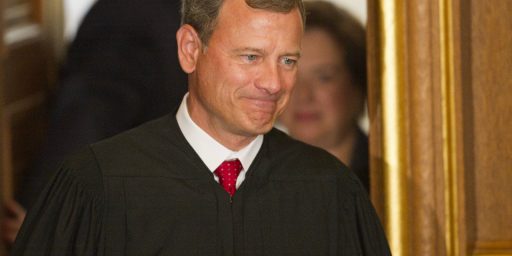Roberts: Congress Can Trump Court Decision
Chief Justice nominee John Roberts has told the Senate that Congress can overrule controversial Supreme Court decisions such as the Kelo case.
Roberts: Congress Can Trump Court Decision
Chief Justice nominee John Roberts said Wednesday that Congress has the right to counter a divisive Supreme Court ruling and decide whether cities have the broad power to seize and raze people’s homes for private development. “This body and legislative bodies in the states are protectors of the people’s rights,” Roberts said on the third day of his confirmation hearings to be the nation’s 17th chief justice.
Republicans and many Democrats reacted angrily earlier this year when a sharply divided Supreme Court said cities can take and bulldoze people’s homes in favor of shopping malls or other private development to generate tax revenue. The decision drew a scathing dissent from Justice Sandra Day O’Connor as favoring rich corporations, and Republican lawmakers have criticized it as infringing on states’ rights.
Congress has been working on legislation that would ban the use of federal funds for any project getting the go-ahead using the Kelo v. City of New London, Conn., decision. “That’s a very appropriate approach to consider. What the court is saying is there is this power,” Roberts told the Senate Judiciary Committee. “That leaves the ball in the court of the legislature.”
This is, of course, correct. The headline, however, is misleading. Congress can pass legislation to overturn the effect of a court decision based on statutory interpretation; they can’t override a court ruling on constitutional law.





It’ so good to hear a judge speak of the law from a Constitutional stand point rather than an activist one who legislates from the bench. Roberts sees the breakdown of powers as the Constitution states and not as the left believes in their loose interpritation which has given power to these judges that use the court to press a political agenda and believe that the legislative branch is answerable to the courts rather than the courts to the legislative as the Constitution states.
Ken Taylor
Congress can pass legislation to overturn the effect of a court decision based on statutory interpretation; they can’t override a court ruling on constitutional law.
Unless they rewrite the law in such a way that they think it would pass constitutional muster, or they actually go to the trouble of trying a constitutional amendment.